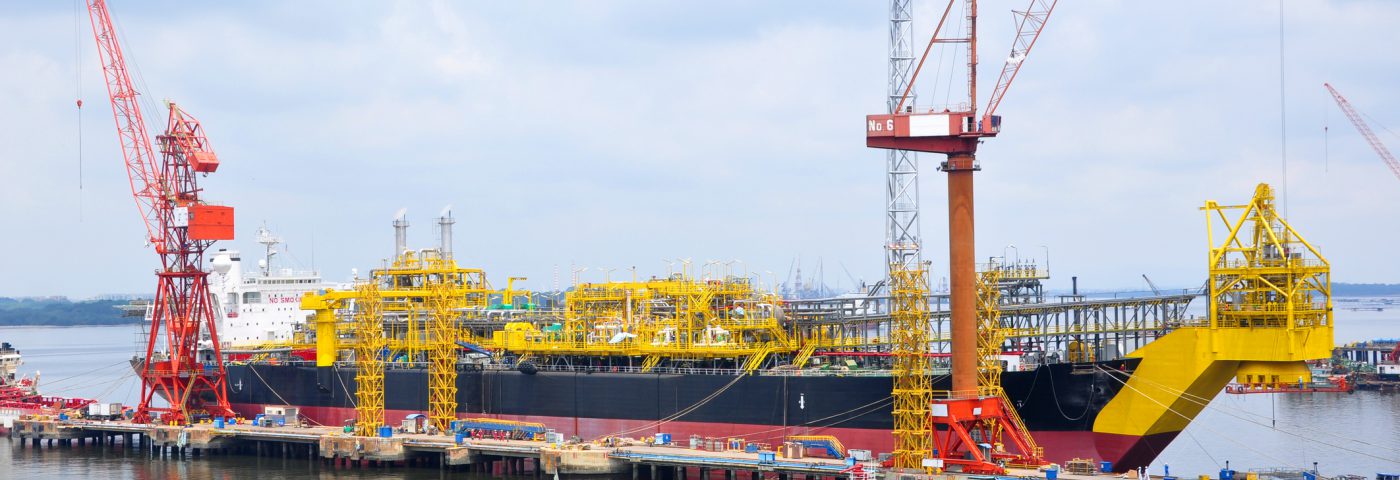Guest post: Fugro
Despite offshore’s transition to renewable energy, the extraction of oil and gas will still play an important role in petrochemical and energy production for years to come. Since many of the “easy” hydrocarbon reservoirs have already been discovered, many operators are turning to deepwater exploration of oil and gas. The production and/or temporary storage of hydrocarbon from deepwater reservoirs is usually supported by floating technology: approximately 200 “floaters” are in operation globally today and demand is increasing, estimated at another 90 new units within the next 3 years. But are we assured of their long-term safety?
An obvious but unique property of floating operations is that they are permanently moored in a dynamic environment and subject to continuously changing metocean conditions such as wind, currents, wave height and ocean temperature. Added uncertainty from climate breakdown means that offshore conditions are becoming more challenging and weather events more extreme. For floating assets, these changing and increasing forces act directly on their mooring systems. Furthermore, factors such as microbial activity, which is influenced by ocean temperature and chemical composition, can accelerate corrosion, further threatening mooring integrity.
Incident statistics in respect of mooring integrity show frequencies of only around 5 to 10 operational years per incident, much sooner than most assets’ intended design life, which suggests that the “design target for the annual probability is not met” (2018 American Bureau of Shipping Report). Over the years, the frequency of mooring integrity breaches relative to the number of operational floaters has stayed the same, meaning that advances in mooring technology have not translated into corresponding safety gains.
Without wanting to be a “disaster prophet”, and appreciating that all parties involved are working to improve floater security, should we be concerned about the expected increase in the number of operational floaters combined with a non-downward trend of mooring integrity events in changing environmental conditions? Thankfully, we have not (yet) witnessed a catastrophic floater event but catastrophic events usually result from a rare and unfortunate combination of circumstances. Are we in control of mooring integrity or have we just been lucky so far?
Without wanting to rob you of your well-deserved sleep, here are some concerns that sometimes keep me awake at night:
- As an industry, do we have enough knowledge of the degrees of uncertainty in mooring design parameters and the impact of those uncertainties on mooring integrity longer term?
- Are the past assumptions that underpin mooring designs and subsequent installations still valid in today’s changing climate?
- Are the appropriate mechanisms in place, including early warning systems, for any potential mooring integrity issues so we have more time to act and prevent further damage if anything goes wrong?
Industry bodies are working to improve our understanding of floater safety but is enough is being done fast enough? Today at Fugro, we offer comprehensive seabed condition and marine environmental characterisation solutions that help improve design quality as well as mooring behaviour monitoring and inspection solutions. Our objective is to use longer-term monitoring and inspection results and interrelate them with metocean forecasting using floater-specific smart algorithms to facilitate mooring integrity status forecasting. Besides acquiring valuable Geo-data on real-world conditions for design support, our aim is to give operators sufficient notice to intervene before mooring integrity is compromised.
Food for thought but be assured we work around the clock contributing to a safe and liveable world so you don’t have to lose any sleep.
End
For more information
Caspar Schoorl
Business Development Manager, Asset Integrity


